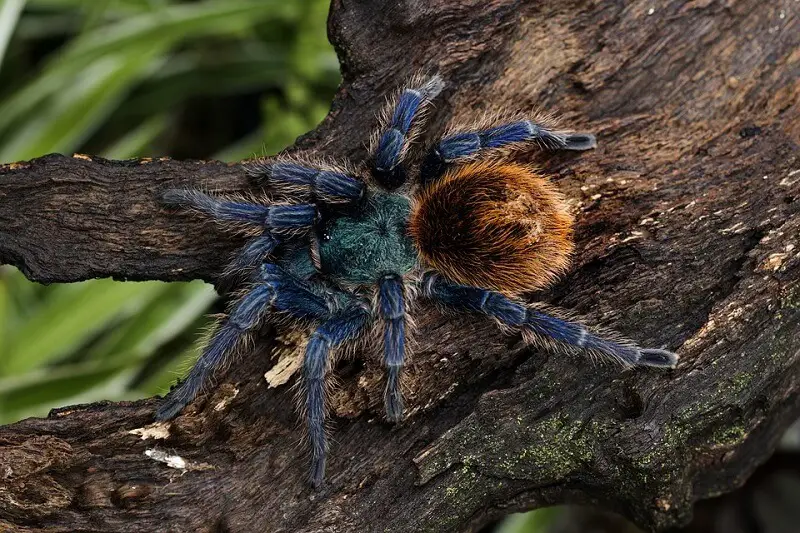You should always try to remember that although very sweet, squirrels are still wild animals and should be treated as such. You might be sad when you see them run away from you but realistically speaking, this might be for the best. Getting scratched by a squirrel would be really bad for you considering that they have very long and sharp claws and teeth. But what would actually happen if a squirrel would scratch you? I have written this article to give you a better understanding of what happens after something as small as a squirrel would scratch you.
What would happen if a squirrel scratches you?
If a squirrel scratches you the first thing that you will notice will be a very deep and particularly painful cut. The sharp, strong, and long claws and teeth of a squirrel would easily cut your skin. Things won’t stop there and if the animal were to carry any disease, it would probably be transmitted to you through the wound.
Squirrels have never been meant nor have they been trained to socialize well around humans. Squirrels won’t attack you first, but if you get too close to it to feed it, pet it, or for any other reason, it might feel threatened, which would wake up its survival instincts, making it bite or scratch you. Below you will find some of the most important things to consider when a wild animal like a squirrel will bite you:
You might also like my articles about squirrel poop and coyote poop.
The actual wounds
As I said, a squirrel won’t usually attack you first. It will only get aggressive and resort to scratching when it feels threatened. Its teeth will go through your skin and flesh pretty easily. If you get scratched by a squirrel’s claws, you will notice that the bleeding would be consistent. Like most wounds and especially those that come from animal bites and scratches, the one inflicted by a squirrel can become bacterial heaven and can even lead to an infection. It would be best if you’d get consulted by a doctor as soon as possible after a squirrel bites or scratches you.
Possible rabies infection
 Humans can catch a multitude of different illnesses, some with very severe symptoms if they are scratched by a squirrel. Some diseases will be easily transmitted the someone’s blood from an infected animal’s saliva. This is why you can easily get infected when a squirrel bites you. The good news is that not a lot of squirrels are known to have rabies. Even though the chances of actually catching this disease are pretty slim, you should still get yourself checked as soon as possible after the bite, considering that rabies is usually deadly when left untreated.
Humans can catch a multitude of different illnesses, some with very severe symptoms if they are scratched by a squirrel. Some diseases will be easily transmitted the someone’s blood from an infected animal’s saliva. This is why you can easily get infected when a squirrel bites you. The good news is that not a lot of squirrels are known to have rabies. Even though the chances of actually catching this disease are pretty slim, you should still get yourself checked as soon as possible after the bite, considering that rabies is usually deadly when left untreated.
It is even more important to get checked for rabies when the animal was showing symptoms of the disease even before it bit you. These signs include foaming at the mouth, it seeking you out aggressively, or other types of aggressive, unnatural behavior.
Other possible diseases
Rabies isn’t the only disease that can be carried by squirrels and passed through scratches or bites. Other diseases like Lyme disease, leptospirosis, salmonellosis, or tularemia can also be transmitted from a sick squirrel. I’ll try to get into detail about these illnesses below:
Diseases carried by squirrels
Tularemia: This is a disease that you would have a bigger shot of catching if you were to handle a dead or sick squirrel, without the necessary protective measures like gloves. You can identify this disease by symptoms like skin ulcers, swollen lymph glands, headaches, or fever.
Salmonellosis: You probably already know that you can easily get salmonella from infected uncooked eggs. But did you know that squirrel feces also feature a risk of salmonella infections? Among the symptoms that you should look for if you suspect that someone is infected with this disease are intestinal cramps, diarrhea, or vomiting.
Lyme disease: Like most animals with fur, squirrels can also have ticks that are carriers of bacteria. Some of the most common symptoms of Lyme disease for humans will be headaches, fatigue, or skin rash.
Leptospirosis: This disease will be a little harder to get. A squirrel will have to scratch you and then your wound would have to get in contact with its urine for you to get it. Now, I don’t think you can actually make a squirrel so angry that after it scratches you, it will also try to pee on your wounds, but traces of urine could be on its fur, so there are ways in which you can get leptospirosis. The most common symptoms of this disease will be headaches, fever, vomiting, and rashes.
Can I touch squirrels?
It might not seem like a big deal to touch a squirrel, but things can turn bad really fast. This is why I always recommend against touching wild animals that you donțt know. and this includes squirrels. These small rodents can get scared very easily and they will try to protect themselves by scratching or biting you. Additionally, it is a common occurrence for squirrels to also have feces, urine, or bacteria in their fur, putting you in danger of catching all kinds of diseases.
Final words
Keep in mind that if you get scratched or bitten by a squirrel, along with the pain you will feel, you can also catch one of the many diseases that are carried by squirrels. Even if you don’t catch a disease, the pain is not something to ignore. Its teeth and nails will cut very deeply into your skin, sometimes even reaching the bone.




